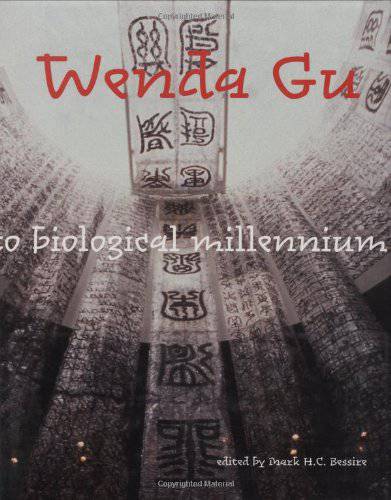Wenda Gu is one of the leading contemporary Chinese artists of his generation. Known by some as “the hair artist” and remembered by others as the artist whose monumental installation was violently destroyed by a Russian artist at the infamous “Interpol” exhibition, he is part of the diaspora that has sent many Chinese artists to the West over the past twenty years. He has built his reputation on reinvigorating ancient Chinese symbols and practices ― the seal, calligraphy, ink painting ― with contemporary vision and meaning. Wenda Gu often uses genetic material ― hair and blood ― as his medium. His most ambitious, ongoing project, the United Nations series, consists of installations at sites around the world in which hair is used to create works of art emblematic of a future not ruled by racial or national boundaries. To mark the British handover of Hong Kong to China, for example, he created “United Nations: Hong Kong Monument: The Historical Clash”, which consisted of a Chinese flag made of Chinese hair, a Union Jack made of British hair, and hair cuttings from Hong Kong scattered on the floor. These “united nations” monuments have been installed so far in Australia, Canada, China, France, Great Britain, Holland, Hong Kong, Japan, Italy, Poland, Russia, South Africa, South Korea, Sweden, Taiwan, and the United States. “Wenda Gu: Art from Middle Kingdom to Biological Millennium” is the most comprehensive presentation of Wenda Gu's work to date. Two generous sections of plates document the United Nations series and other projects, many of which are presented in the exhibition this book accompanies. The book also includes previously unpublished writings by Gu, an interview with the artist by David Cateforis, and essays by Mark Bessire, the co-curator of the exhibit, and Gao Minglu and Gan Xu, both leading authorities on the new Chinese avant-garde.
- / Article author
- / Article author
- / Article author
- / Article author
